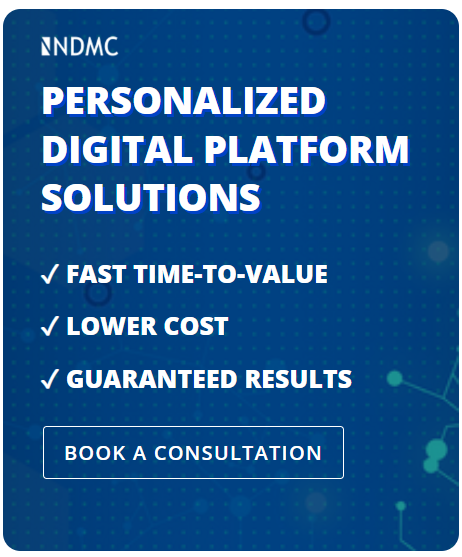We live in a data driven business world. How do you tap into yours?
It’s thought Jeff Bezos was the first person to use the term Innovation Value Management (IVM) to describe data as a business asset based on its contributory value. If it wasn’t Jeff, then it was probably one of his team. Amazon is passionate about the value of its data. The company leadership team knows that capturing rich insights on its customers—their buying preferences and behaviors—offers an unrivalled competitive advantage.
Creating Data Driven Culture
When organizations shape their management approach to use data every day to make decisions, they are often described as operating a data driven culture. Organizations want to maximize the value of their data by using it to make business decisions. It’s never been more possible thanks to cloud computing and big data. And yet, the secret of driving business success through data often has more to do with the attitudes and skills of your people, than the technology they use.

A Business with Curious Minds
Businesses that transition decision making to be evidence based, need curious minds to power change. Individuals at all levels of the enterprise must as the question ‘Why’ more often, and have data and analytical tooling at their disposal that equips them to rapidly find answers to those questions. In the digital age, a spreadsheet doesn’t quite cut it. You will need data harvesting and visualisation tools. More over, you will need data to be organized correctly in the first place, and probably cleansed of impurities.
Many of the new executive roles are analytics based. For example, in the office equipment industry, the transition to data-driven business has led many vendors to appoint Service Managers with an analytical background where previously, these roles were fulfilled by ‘the best field service engineers.’ Such roles today are largely about understanding patterns in data, managing people, and acting on escalations.
The latest research from Gartner suggests that, by 2023, data literacy will become an explicit and necessary driver of business value, demonstrated by its formal inclusion in over 80% of data and analytics strategies and change management programs.

The Democratization of Data Analysis
Data has become the lifeblood of enterprise. Executive management teams are taking more of an active ownership role in BI initiatives than ever before. Once the bastion of large corporations—because they were the only community of business able to afford the extremely high price tag—business intelligence has become democratized over the last decade thanks to affordable ‘pay-as-you-use’ applications and cloud-based technologies that scale accessibility and affordability to dashboarding and data warehousing tools.
Benefits
Creating a data driven ‘curious’ culture will help your business to understand customer behavior, react to market changes faster than your rivals and eliminate the unknowns. What organization would not want these abilities?

Challenges
Competency Gaps
Armed with a new set of ambitions, organizations are establishing leadership roles to drive the transition of people, process, technology and data to evolve a data driven culture. The Chief Data Officer (CDO) role is growing in popularity as a standard bearer. According to the latest research from Gartner, this role is intended to:
- To define and advocate the vision, priorities and role scope of a data driven culture
- Transform the enterprise by prioritizing cultural change and fostering a data-driven orientation
- Apply asset management disciplines to select information assets and borrow ideas from other industries and competitors to monetize data
- Apply technology leadership and best practice to aid the data-driven transformation of their enterprise
Culture Change
In a digital era, businesses operate on data. Much of their opportunity is programmed into inbound marketing schemas and their operational performance depends on data analytics to execute hundreds of decisions based on fact—not gut-feel—to fine-tune internal processes and minimize sales costs. To create a data driven culture requires a culture change in many management teams that are accustomed to driving their business based on ‘hunches’ and ‘best guesses’ over what customers value and what they want. A digital economy means that enterprises no longer need to guess.
Jeff Bezos, the founder of Amazon is quoted as saying, “If you don’t understand the details of your business you are going to fail.”
Adoption Hurdles
The most commonly reported barriers to a data driven culture are:
- A lack of data literacy in management teams resulting in poor leadership buy-in.
- Suboptimal data analytics capabilities.
- Unclear data ownership and strategy.
- Challenges with data integration – Even with ‘lots of data’ stored in their back-office systems, many businesses find there’s an issue with getting access to the data tools and data scientists needed to really make use of the data assets they hold.
- Data quality shortcomings.

Final Thoughts
The transition from analog to digital business behaviors has been swift; a matter of a few years. Many enterprises find themselves on the wrong side of this wave, operating without good customer, product, business or market insights. They find their operations somewhat sluggish compared to the ‘SaaSy’ new-kids on the block. Executives know, curious minds are needed to fast-track change at every level of the organization.
Attitudes to data vary across businesses. Leaders generally see it as crucial and an opportunity, while many departmental leaders find it a tantalizing prospect that’s probably out of reach. IT leaders, on the other hand, see data as a problem and a risk. And there will be many that see the surfacing of operational data as a risk, given that it might expose their underperformance. Bringing everyone on the same page will not be easy, but it is necessary to remain competitive in a digital economy.
A Change Project Like No Other
Creating a data driven culture is a change project like any other. To be successful, your business needs to be armed with the same state-of-the-art methods and tools that your competitors will be using. Nothing less will do. That means harnessing robotics and artificial intelligence, analytical visualization tools, predictive modeling and automated escalation routines.
Unfortunately, when considered in isolation, none of this technology will actually help your business to harvest its opportunity and grow. Like most changes in business, it will take a blend of ‘people, process, data and technology’ to become a successful data-driven enterprise—and the need to change attitudes and behaviors will as always take center-stage.
More Reads…
About USTECH GLOBAL

We make innovation work for businesses around the world.
We live in a digital era. Everyone is connectedTo thrive, organizations must win the hearts and minds of online communities. USTECH GLOBAL is an international digital advisory and technology company that exists to make innovation work for companies around the world. Through our ideas, passions and skills, we bring competitive advantage. To find out more, get in touch.










